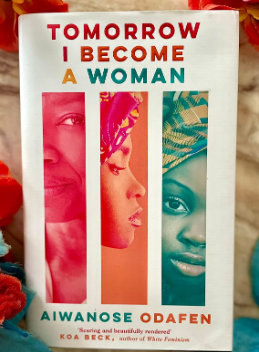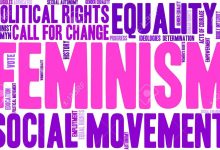
In every 10 African marriages, there are 7 Ujus who society and religion have confined to an abusive marriage. Aiwanose Odafen’s debut novel, “Tomorrow I Become A Woman,” is a bold critique of religion and societal manipulation of women’s rights. It’s a call for gender equality and justice for victims of male perpetrators. The author dares society to address the systematic unfair treatment of women and spotlight how society cheats girls and women through perceived gendered roles. Uju, the book’s fictional character, was served many dishes of injustice by society and even by her mother. As a girl, Uju was made to adhere strictly to dress codes her brothers were exempt from, assist her mother in the kitchen, and observe a strict curfew. As an adult, society dictates how she must live her life.
Despite being an outspoken and intelligent woman, Uju was turned into a punching bag by her husband and was frustrated to abandon her fully-funded postgraduate studies in pursuit of a male child. She was subjected to gender-based violence and ridiculed because of her inability to have a boy child. The author deeply explained how a woman is taught that she is nothing without a husband; then, after marriage, she is nothing without a son. Also, Odafen showed the readers how society stigmatised single women and treated them as outcasts, as seen in Uju’s husband’s suggestion to abandon Chinelo (her friend) because a married woman cannot be friends with an unmarried woman.
Similarly, Uju’s abusive marriage reveals how marriage, which is often seen as an achievement for women, is an entrapment, and the “endure” phrase is an emotional manipulation that grooms women to tolerate suffering for the sake of society’s acceptance. The novel reflects how women are silenced by their families, religious institutions and even fellow keepers of patriarchy like Uju’s mother. Although Uju initially submits to societal expectations, her gradual resistance and search for her true self delicately capture the title of the book “Tomorrow I Become A Woman.” Indeed, society will deny women their rights and autonomy over their bodies, but women will keep fighting until they reclaim them.






